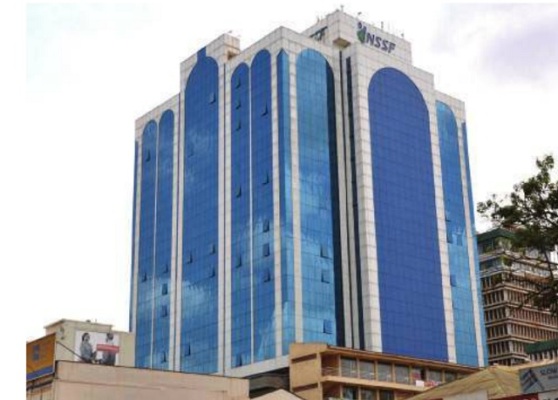A section of lawyers has described the agreement signed between the government and the Uganda Vinci Coffee Company Limited as a bad deal that should be challenged in Courts of law.
The agreement was signed on February 10, 2022, by Ramathan Ggoobi the Secretary to Treasury on behalf of the government and Enrica Pinetti, an Italian investor and the Board Chairperson of Uganda Vinci Coffee Company Limited on behalf of the company.
The company was given free land in the Industrial and Business Park at Namanve after it indicated its capability of establishing a coffee processing facility in Kampala.
It will also be given exclusive rights to buy all Uganda’s coffee even before the government can look at other players. The Company is also exempted from paying taxes such as Import duty tax, Stamp duty, value-added tax, National Social Security Fund, Pay As You Earn and will have the right to determine the coffee prices in the country on top of enjoying electricity subsidy among others. The Company’s concession will end in 2032, but it is subject to renewal.
But some legal experts say that it’s a bad deal and wonder how an ordinary farmer will benefit from it.
Andrew Mumpenje, a lawyer wonders how the government will benefit from the deal where land and roads are given freely to the investor and electricity subsidized.
“How do you wave every tax payable by a company for a full ten years and then also say that where the tax cannot be payable, the government will pay it? Why should the government waive taxes for a company that does not even pay corporate tax on its profits?”, asked Mumpenje.
He added that this is a bad deal for Uganda and he believes that something is being hidden in the deal.
Lawyer Shamil Letia Atabua argues that the Constitution grants the Executive powers to acquire, dispose and govern territory but it doesn’t give them the power to switch on and off the constitution at will.
Atabua states that Finance Minister Matia Kasaijja ignored the constitution and granted tax holidays.
Another lawyer Humphrey Tumwesigye says that the deal is bad because paying a tax is a duty of every individual and that the employees of that company are going to lose what they are entitled to for instance NSSF.
He says if the company is to be exempted from paying taxes even cooperatives should as well be exempted. According to Tumwesigye, the agreement ought to be challenged in Courts of law. He also questions why the Solicitor General and the Line Ministry of Agriculture was not part of the deal.
Last week, the Minister of Agriculture, Animal Industry and Fisheries Frank Tumwebaze said that he was not a signatory to the agreement.
According to Lawyer Francis Harimwomugasho the agreement is a moral issue and not legal.
“What remains is a political/moral debate of why particularly the Company owned by somebody whose promise on Lubowa Hospital has not been delivered? Why direct Procurement when many Companies could have competed for it and even delivered given their experience. Why all those incentives in a free market economy?” said Harimwomugasho.
He adds that morally, the whole deal is suspicious and points to unadulterated impunity.
Stanley Oketcho also an Advocate argues that the agreement granted the company some exclusive rights that had the effect of creating a monopoly in the business of processing and exporting coffee which is illegal and illogical in economic terms and therefore unconstitutional.
He says this has the effect of eliminating other similarly situated investors or coffee farmers because one cannot compete with a company that does not pay taxes over a period of 10 years.
“This a clear monopoly. The government does not have the power to enter into such an agreement. Perhaps the opinion of the Attorney General would have been different had he applied himself when advising the government. It is just a matter of time before this agreement is struck down just like the Spedag case.”. said Oketcho.
In August, 2020, the Constitutional Court ruled in the case of Spedag Interfreight Uganda, and two other Companies against the Attorney General and Great Lakes Ports Limited that government did not have the power to enter into a contract that limited the petitioners’ fundamental rights under Article (40) (2) of the Constitution.
The clearing of goods over the port was exclusively granted to Great Lakes Ports Limited a company owned by Former Foreign Affairs Minister Sam Kutesa forcing other people in the same business to challenge it successfully in Court.
–URN





